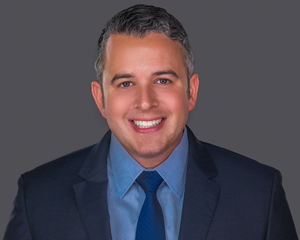When a person suffers a personal injury and later passes away, any settlement or judgment related to the injury may need to go through probate. Probate is the legal process of administering a deceased person’s estate, ensuring that debts are paid and assets are distributed to beneficiaries. Understanding how personal injury settlements interact with probate can be crucial for families, executors, and beneficiaries dealing with the estate.
What Is Probate?
Probate is a court-supervised process for validating a deceased person’s will, settling debts, and distributing assets. If no will exists, state intestacy laws determine how the assets are divided. Personal injury settlements or awards obtained after the victim’s death are considered part of the estate and must be managed through probate.
The probate process typically involves several stages, including appointing an executor or administrator, identifying and valuing assets, notifying creditors, paying debts and taxes, and distributing the remaining assets to heirs. Probate proceedings can vary significantly based on whether the deceased had a valid will or died intestate (without a will). When personal injury settlements are involved, these funds must be carefully managed to ensure proper handling under probate laws.
Personal Injury Settlements as Estate Assets
A personal injury settlement becomes an asset of the deceased’s estate if the settlement was unresolved at the time of death or the case was still pending. Even if the injured person died from unrelated causes, any compensation awarded is typically included in the estate. This includes payments for medical bills, lost wages, and pain and suffering incurred before death.
If the injury caused the individual’s death, the case may evolve into a wrongful death or survival action. Wrongful death claims compensate surviving family members, while survival actions allow the estate to recover damages incurred by the deceased before passing away. Each type of claim has different rules and implications for probate.
Wrongful death settlements often bypass the probate process and are distributed directly to the surviving family members. This can provide faster financial relief for dependents but also requires careful legal planning to ensure proper allocation. In contrast, survival actions are treated as estate assets and must go through probate, making it important for executors to distinguish between these types of claims.
Challenges in Probate with Personal Injury Settlements
Handling personal injury settlements in probate can present several challenges. First, delays in settling claims may prolong the probate process, causing financial strain for beneficiaries. Additionally, disputes may arise regarding the distribution of funds, particularly if multiple heirs are involved or if the settlement covers both economic damages (e.g., medical bills) and non-economic damages (e.g., pain and suffering).
Executors may also face difficulties in determining how to allocate funds when multiple beneficiaries are involved. Some heirs may believe they are entitled to a larger share of the settlement, leading to disputes that can further delay the process. Legal guidance is often necessary to mediate these disagreements and ensure a fair distribution.
Tax implications can also complicate matters. While compensation for physical injuries is generally not taxable, portions related to punitive damages or interest may be subject to taxes. Executors must carefully account for these factors when managing the estate.
Special Considerations for Wrongful Death Claims
Wrongful death settlements differ from standard personal injury settlements in probate. In many states, wrongful death awards are paid directly to surviving family members rather than passing through the estate. This distinction can shield the funds from creditors, ensuring financial support for the deceased’s dependents.
Survival actions, on the other hand, are treated as estate assets and must go through probate. Executors handling both types of claims need to distinguish the awards and allocate them appropriately.
In cases where both wrongful death and survival actions are pursued, clear documentation and legal strategies are required to separate the funds and ensure proper handling. Executors should work closely with attorneys to avoid commingling funds, which could lead to disputes or legal challenges.
Protecting Settlements from Probate Delays
To protect settlements from lengthy probate delays, pre-planning strategies can be employed. For example, establishing trusts can allow certain assets to bypass probate altogether, ensuring faster access to funds. Beneficiary designations, payable-on-death accounts, and joint ownership arrangements can also help streamline asset transfers outside of probate.
Trusts are particularly useful tools for safeguarding settlements from probate. A properly funded trust can ensure that personal injury settlements are immediately accessible to beneficiaries, bypassing the probate process entirely. Trusts can also provide greater privacy, as probate proceedings are typically public records.
Working with an experienced probate attorney can help families navigate these complexities and ensure compliance with state laws. Legal professionals can assist with drafting trusts, ensuring compliance with probate rules, and protecting assets from creditors, taxes, and other claims. Proper planning can minimize delays and legal complications while providing peace of mind for beneficiaries.
Practical Tips for Executors
Executors play a vital role in managing personal injury settlements within probate. They should maintain detailed records of all transactions, including receipts, legal documents, and court filings. Regular communication with beneficiaries can help reduce misunderstandings and prevent disputes.
Executors should also seek professional guidance when valuing settlements, determining tax obligations, and negotiating with creditors. Hiring financial advisors and legal counsel can simplify these processes and ensure compliance with probate laws.
Finally, executors should remain patient and diligent throughout the probate process. While personal injury settlements can add complexity, careful planning and professional support can help streamline the administration of the estate and provide beneficiaries with the financial support they need.

